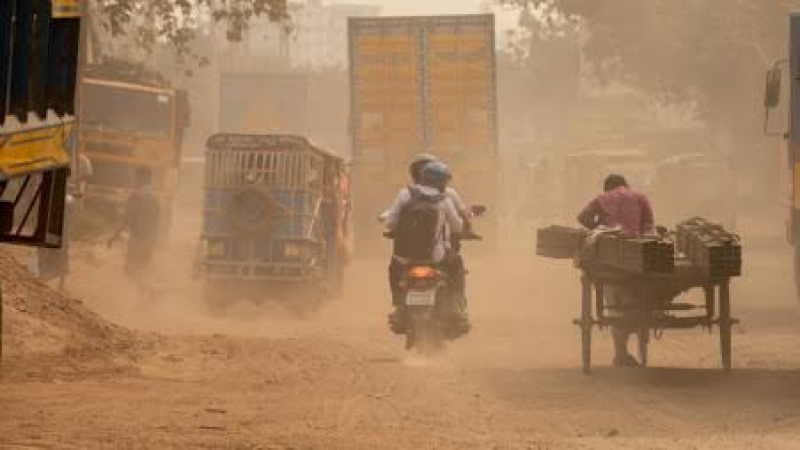- Alamdanga’s disabled Zahurul sees the world through his hands |
- Touhid dismisses Indian media reports linking Dhaka for Delhi blast |
- IOM, HCI partner to combat human trafficking in Rohingya camps |
- Gold price goes up again in Bangladesh |
- Suicide bomber targets Islamabad court, killing 12 people, wounding 27 |
Dhaka continues to struggle with very unhealthy air

Dhaka, the overcrowded capital city of Bangladesh, has ranked third on the list of cities with the worst air quality with an AQI score of 234 at 9:40 am this morning (November 12, 2025).
Today Dhaka’s air was classified as ‘very unhealthy’ referring to an alarming health threat, according to the AQI index. Such air quality continued for the past few days, rising concerned over public health among the city dwellers.
When the AQI value for particle pollution is between 50 and 100, air quality is considered ‘moderate’, usually sensitive individuals should consider limiting prolonged outdoor exertion, between 101 and 150, air quality is considered ‘unhealthy for sensitive groups’, between 150 and 200 is ‘unhealthy’, between 201 and 300 is said to be 'very unhealthy', while a reading of 301+ is considered 'hazardous', posing serious health risks to residents.
India’s Delhi, Pakistan’s Lahore and again India’s Kolkata cities respectively occupied the first, second and fourth spots on the list, with AQI scores of 761, 364, and 232 respectively.
The AQI, an index for reporting daily air quality, informs people how clean or polluted the air of a certain city is and what associated health effects might be a concern for them.
The AQI in Bangladesh is based on five pollutants: particulate matter (PM10 and PM2.5), NO2, CO, SO2, and ozone.
Dhaka has long been grappling with air pollution issues. Its air quality usually turns unhealthy in winter and improves during the monsoon.
As per World Health Organization (WHO), air pollution kills an estimated seven million people worldwide every year, mainly due to increased mortality from stroke, heart disease, chronic obstructive pulmonary disease, lung cancer, and acute respiratory infections, reports UNB.

